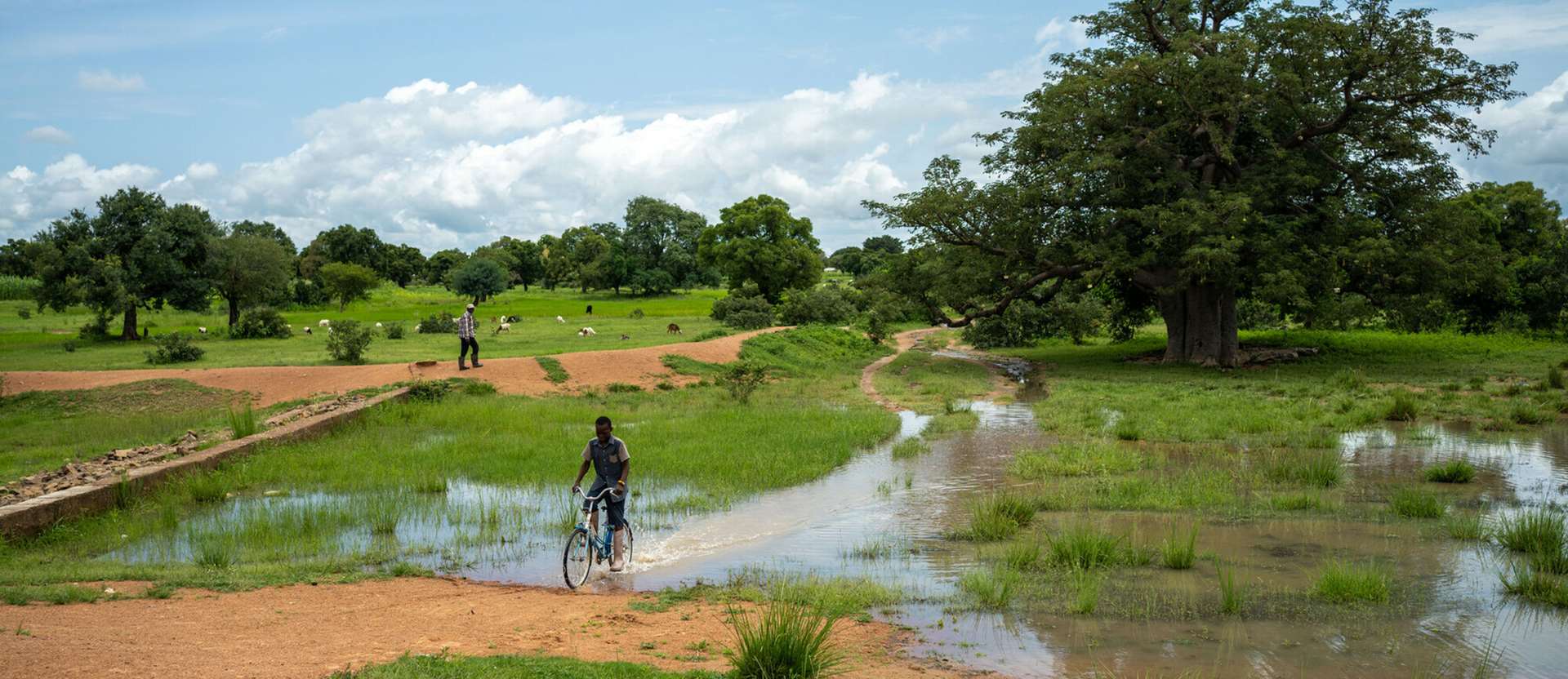
On the World Day to Combat Desertification and Drought 2022, Tree Aid launches our new five-year strategy. Tree Aid's CEO Tom Skirrow introduces our vision, to create the change that is needed.

World Day to Combat Desertification and Drought
Since 1994, the 17th June has been marked as the World Day to Combat Desertification and Drought. It marks the moment the world came together and recognised, under the Rio Conventions, that the threats facing our planet's fertile land required urgent and concerted action. For nearly 30 years, the United Nations Convention to Combat Desertification and Drought has dedicated its mission to highlighting this issue, urging governments and the international community to act before it is too late and our soils can no longer support life.
Image: Rowan Griffiths - Mbole Agurogo on his degraded land
The issue of desertification has been central to Tree Aid's mission since we began in 1987. Working with local people across the drylands of Africa, we are determined to see thriving communities and ecosystems across the region. Using our years of experience, we are able to work hand in hand with communities to tackle the intertwined cycles of poverty and land degradation. We support communities to restore land and build their livelihoods in harmony with their surrounding environment.
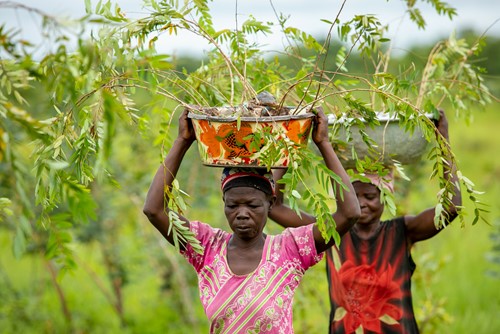
Women participating in a Daka River Restoration project carrying saplings- Yendi, Ghana
Desertification: A Growing Crisis
Yet despite all these efforts, as the 2nd Global Land Outlook report stated in April this year, up to 40% of the world’s land remains degraded – predominantly in dryland regions most at risk from desertification and drought. This trend continues unabated and restoration efforts remain woefully behind the levels required. The 2020 UNCCD report on the flagship Great Green Wall showed that in the first 12 years of work, only 16% has been delivered upon.
When the international community came together in Abidjan for the COP15 of the UNCCD, we again heard stark reminders that the situation is graver than ever. During the conference, Ibrahim Thiaw, UNCCD Executive Secretary, said: “Meeting against the backdrop of multiple global challenges, including the worst-in-40-years drought in Eastern Africa, as well as food and economic crises fuelled by the ongoing COVID-19 pandemic and conflicts, countries have sent a united call about the importance of healthy and productive land for securing future prosperity for all.”
Scaling Up Solutions to Meet the Challenge:
In Tree Aid’s new strategy, launched this week, we are redoubling efforts to scale up our work. Tree Aid's work has always been about much more than simply growing trees – but trees are an essential part of our mission to restore landscapes and help people lift themselves out of poverty in the drylands of Africa.
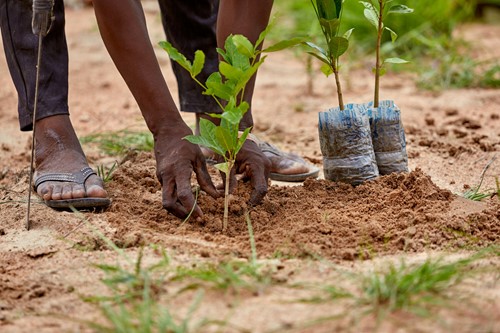
Kafera Danunase planting a tree - Grow Hope project - Paga, Ghana
Our new strategy looks to leverage the huge success we have had over recent years in restoring landscapes and supporting families, and take the necessary steps to affect change across the entire region. As we set out our vision for what needs to happen to combat climate change, restore degraded land and help people lift themselves out of poverty, we recognise our actions alone will not be enough to create the change we need.
Empowering Families:
Our strategic approach centres on the households we work with. Families on the frontline of the climate crisis are the core of whom we work for and with, and they are the key agents of change for the region. We will work to empower these families with the tools and skills necessary to restore their land and provide a future of hope for themselves. By working with them to improve management of their land, their livelihoods, and nutritional outcomes, these households can take a leading role in the restoration efforts that are so needed across the drylands of Africa.
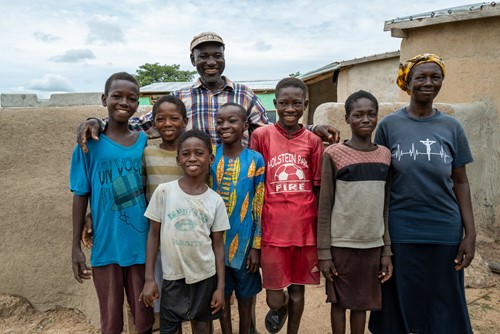
Awujani family - Upper East Ghana
Empowering Communities:
Our approach recognises that the success of our efforts to empower families relies upon their connections within communities. Our new strategy will focus on empowering these communities to work together to solve the collective issues they face. You can have incredible results when communities work together on communal problems, this has always been central to our work. When communities come together, they can collectivise their efforts to harvest, produce, aggregate and market products, they can understand the landscape they share and work to agree joint rules of access and management of that landscape, and they can apply those rules to deliver landscape wide restoration efforts. By empowering both families and the communities that they are in, our holistic efforts will have lasting and transformational impact at the local level.
Catalysing Systemic Change
Beyond the borders of our programmes, a truly transformational impact across the drylands of Africa requires enabling and empowering systems for families and communities to thrive within. Local successes and the evidence and testimony they bring are essential in the fight to regreen and restore the region. But they must be used to help catalyse systemic changes at the national and international level.
In this strategy period, Tree Aid will draw upon its years of experience to work at the systems level to advocate for change. We will work with local and national governments to enact policy that enables communities and families to thrive. We will work with international policy makers, donors and companies to ensure the right resources are invested in the right ways to drive the change we need to see.
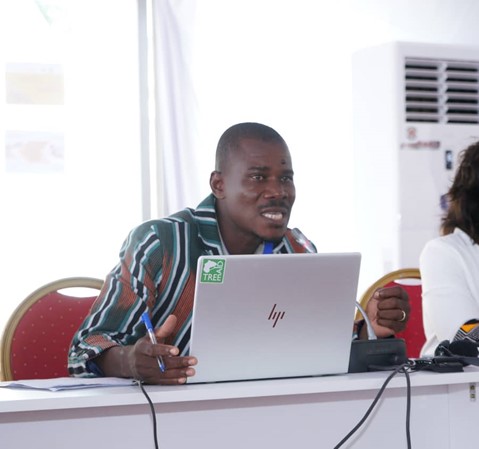
Alexis Sompougdou, Tree Aid Forest Governance Advisor speaks at the UNCCD's COP15 in Abidjan, Ivory Coast
A Vision That Cannot Fail
It is only through recognising the value of, and seeking change in all three levels - families, communities and the systems they exist within – that Tree Aid and the international movement to combat desertification and drought can hope to achieve our long-term ambitions. Our strategy for the next 5 years will take us to the next level in our journey and closer to our vision.
It is a vision, which, for the sake of life and prosperity for people and ecosystems in the drylands of Africa, simply cannot fail.